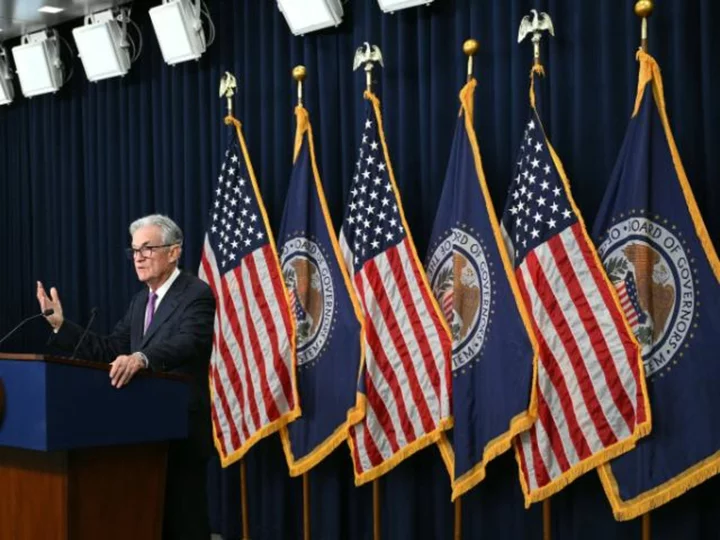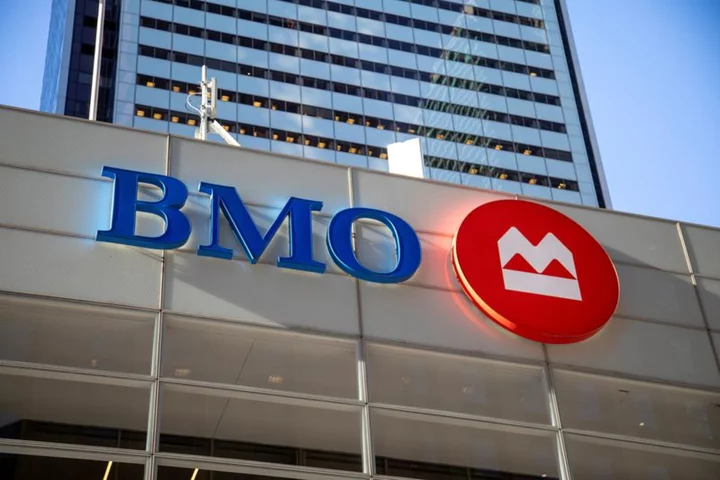US inflation is now much slower than last summer's red-hot pace, but it's not guaranteed it will drift all the way down to the Federal Reserve's 2% target without a sharp rise in unemployment. That possibility remains unlikely.
Defeating inflation without throwing millions of Americans out of work — a scenario known as a "soft landing" — has always been the Fed's "primary objective," according to Fed Chair Jerome Powell last week. And the US economy's surprising resilience, despite 11 rate hikes, has raised hopes of a soft landing becoming a reality.
But there are many uncertainties and economic headwinds on the horizon, including banks toughening their lending standards and the resumption of student loan payments only a few weeks away. Even Powell himself expressed some skepticism when describing the likelihood of a soft landing during his remarks Wednesday after Fed officials voted to hold interest rates steady at a 22-year high.
"I've always thought that the soft landing was a plausible outcome, that there was a path to a soft landing," he said. "Ultimately, this may be decided by factors that are outside of our control."
Shortly after Powell's comments, markets tumbled and Powell tried to remedy his dubious tone by stressing it's still a goal and something the Fed has "been trying to achieve for all of this time."
"Jerome Powell basically downgraded a soft landing (possibility) at the margin," Quincy Krosby, chief global strategist at LPL Financial, told CNN. "The consumer is becoming increasingly more careful. We know that the consumer has been more decisive and more deliberate, but is still spending."
The chances of a soft landing have certainly gotten better over the past several months as employers continued to hire at a solid clip and the unemployment rate remained low. But historical records show that a soft landing has only occurred once in the 1990s, or perhaps even a handful of times.
Aside from the threats posed by rising energy prices, a possible government shutdown, and student loan repayments, Krosby said investors are particularly focused on whether corporate earnings results will finally begin to turn a corner.
Higher corporate borrowing costs due to rising interest rates ate into the profits of S&P 500 companies this year, driving what's known as an "earnings recession," or consecutive quarters of profit declines compared to levels from a year earlier.
"It does look as though the earnings recession is bottoming and may actually be finished, as we get into the third-quarter earnings season," Krosby said. "That's positive for the market. It is positive for consumer sentiment and it should be positive for the overall market."
The end of an earnings recession could be a good sign for the soft landing possibility, but if corporate profit growth doesn't begin to sustainably recover, there go the Fed's chances of defying history and defeating inflation without too much economic pain.
Corporate America is bracing for a lengthy government shutdown
Corporate America's leaders are mentally preparing for an especially long and chaotic government shutdown, my colleague Matt Egan reports.
Executives worry a protracted government shutdown will only add uncertainty to an already confusing business environment. In an era of persistent inflation, labor strikes and rising borrowing costs, they argue it would be another headache -- and a self-inflicted one at that.
"We are deeply concerned," Neil Bradley, chief policy officer at the US Chamber of Commerce, told CNN in a phone interview. "The concern is growing — almost by the day — because once we are in a shutdown there doesn't seem to be a clear path out."
That sentiment was echoed by other business leaders, who are watching with dismay as a narrowly divided Congress stumbles its way toward the September 30 deadline to fund the government.
"Nobody wins in a government shutdown," said one executive at a business group who requested anonymity to speak candidly. "We've always asked the administration and regulatory agencies for a degree of certainty and predictability. But there's nothing less certain than a government shutdown."
Read more here.
Up Next
Monday: European Central Bank President Christine Lagarde delivers remarks.
Tuesday: Earnings from Costco. S&P Global releases its S&P CoreLogic Case-Shiller National Home Price Index for July. The Conference Board releases its Consumer Confidence Survey for September. The US Commerce Department reports sales of new single-family homes in August. Fed Governor Michelle Bowman delivers remarks.
Wednesday: Earnings from Micron. The US Commerce Department reports new orders for durable goods in August.
Thursday: Earnings from Nike. The US Commerce Department releases its final estimate of second-quarter gross domestic product. The US Labor Department reports the number of worker filings for jobless benefits in the week ended September 23. The National Association of Realtors reports the number of home sales based on contract signings in August. Fed officials Jerome Powell, Austan Goolsbee, and Lisa Cook participate in public engagements.
Friday: Earnings from Carnival Corp. The European Union's statistics agency releases September inflation data. The US Commerce Department releases August data on household income, spending, and the Fed's preferred inflation gauge. The University of Michigan releases its final reading of consumer sentiment in September. New York Fed President John Williams delivers remarks. China's National Bureau of Statistics releases business surveys gauging economic activity in September.









